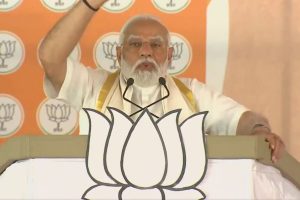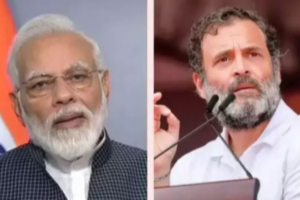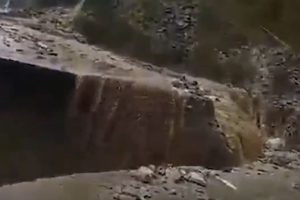Union Minister Dr. Jitendra Singh on Sunday said, the movie “Kashmir Files” has done a tremendous contribution in bringing out the unspoken side of the Kashmir story when most of the filmmakers were busy making films romanticising Kashmiri terrorists.
Dr. Jitendra Singh alleged that contrary to the myth being spread that the exodus of Kashmiri Pandits was engineered by the then Governor Jagmohan at the behest of Bharatiya Janata Party (BJP), the matter of fact is that the National Conference (NC), Congress, and their Kashmir-centric allies had a vested interest in their exodus because it gave impetus to their policy of appeasement towards a particular community and benefited them by creating a deep communal divide.
Speaking at a largely attended programme organised to name a Government School after martyr Tika Lal Taploo, Dr. Jitendra Singh said, in the aftermath of Kashmiri Pandit exodus and the overwhelming atmosphere of terror that followed, the voter turn out in 1996 and subsequent elections remained confined to around 10%, which the National Conference and its allies were successful in easily manipulating to get their members elected as MLAs and MPs.
He recalled that he had on the floor of the Parliament said that there should be a provision to fix the minimum threshold of voter turnout percentage to allow a candidate to be recognized as having been elected as a member of Lok Sabha or State Legislative Assembly.
Dr. Jitendra Singh said, he and several other youth activists of his generation were eye-witness to each sequence of exodus beginning from the arrival of first batches of Kashmiri Pandits at Geeta Bhawan Jammu and makeshift Camps at Mishriwala and Nagrota, where they lived in most unhygienic conditions with the drains passing through the kitchen area and hardly any toilet facility available.
It was pathetic to see upper-middle-class Kashmiri Pandit families forced to live in a makeshift single-room shed without any basic amenities.
Dr. Jitendra Singh said, he vividly recalls the summer of 1990 which was most harsh for the displaced Kashmiri Pandits who had never seen the summer of plains, as a result of which there were a series of heatstroke cases happening, and as as a young medico, he and his colleagues would physically lift heat struck Kashmiri Pandits and place them on ice-slabs.
Describing the killing of Tika Lal Taploo as not only an assault on Kashmiri Pandits but a bigger assault on the composite culture of Kashmir valley, Dr. Jitendra Singh said, Taploo enjoyed reverence across all sections of society for his integrity and compassion.
He said, there are several other aspects, which require more films to be made to depict, for example, why in a democratic setup, a section of society was forced to become refugees in their own country and why this did not elicit the world’s attention.











